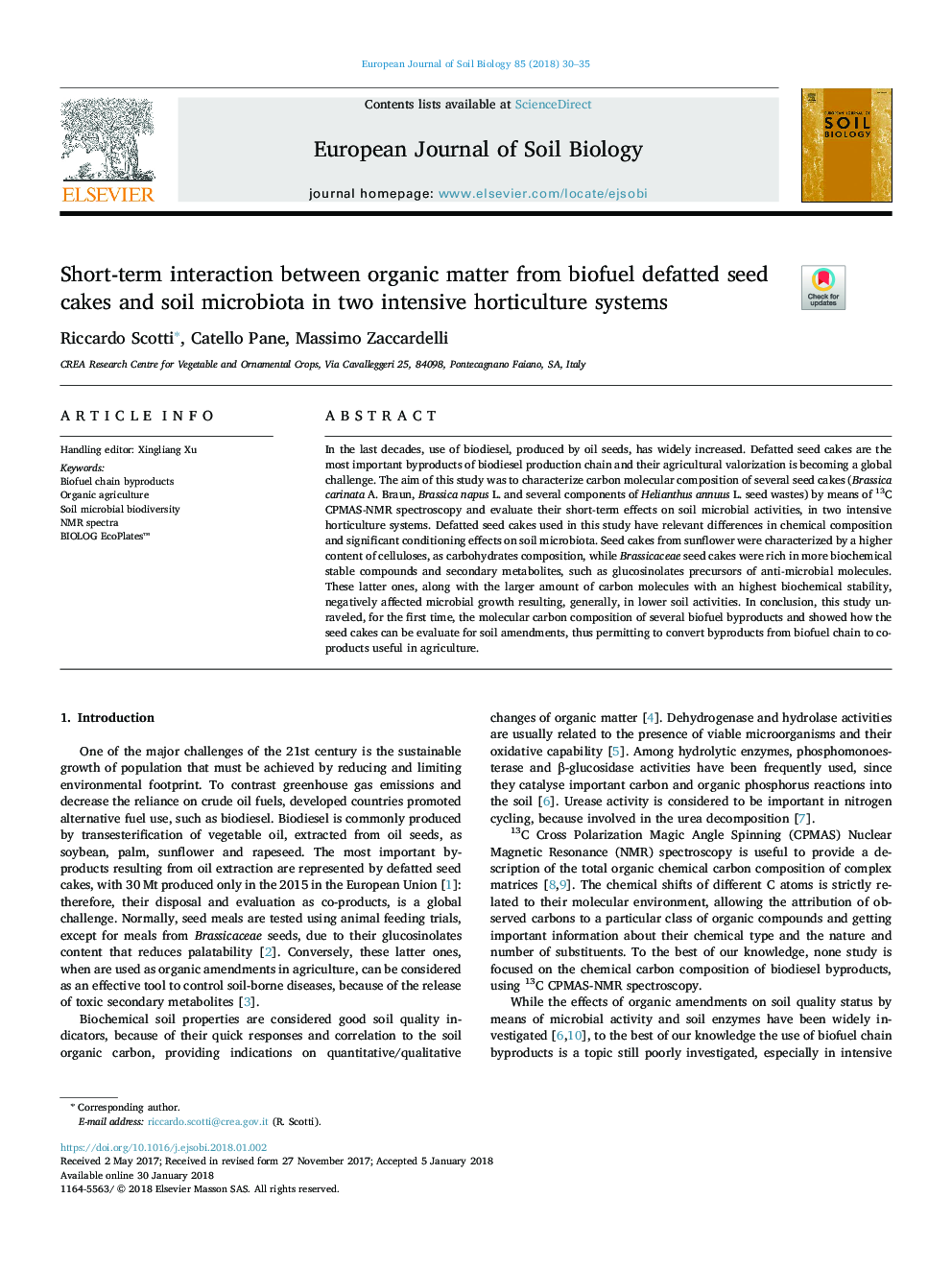| Article ID | Journal | Published Year | Pages | File Type |
|---|---|---|---|---|
| 8848384 | European Journal of Soil Biology | 2018 | 6 Pages |
Abstract
In the last decades, use of biodiesel, produced by oil seeds, has widely increased. Defatted seed cakes are the most important byproducts of biodiesel production chain and their agricultural valorization is becoming a global challenge. The aim of this study was to characterize carbon molecular composition of several seed cakes (Brassica carinata A. Braun, Brassica napus L. and several components of Helianthus annuus L. seed wastes) by means of 13C CPMAS-NMR spectroscopy and evaluate their short-term effects on soil microbial activities, in two intensive horticulture systems. Defatted seed cakes used in this study have relevant differences in chemical composition and significant conditioning effects on soil microbiota. Seed cakes from sunflower were characterized by a higher content of celluloses, as carbohydrates composition, while Brassicaceae seed cakes were rich in more biochemical stable compounds and secondary metabolites, such as glucosinolates precursors of anti-microbial molecules. These latter ones, along with the larger amount of carbon molecules with an highest biochemical stability, negatively affected microbial growth resulting, generally, in lower soil activities. In conclusion, this study unraveled, for the first time, the molecular carbon composition of several biofuel byproducts and showed how the seed cakes can be evaluate for soil amendments, thus permitting to convert byproducts from biofuel chain to co-products useful in agriculture.
Keywords
Related Topics
Life Sciences
Agricultural and Biological Sciences
Soil Science
Authors
Riccardo Scotti, Catello Pane, Massimo Zaccardelli,
